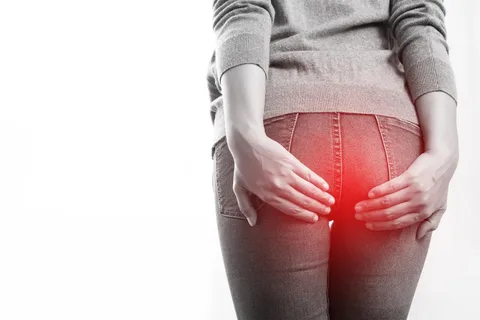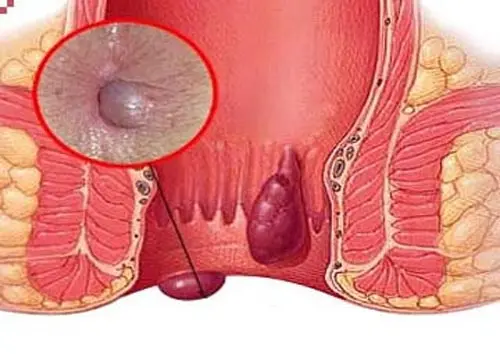
Contents

A perianal abscess is a painful, pus-filled infection that develops near the anus. It typically occurs due to blocked anal glands and can lead to significant discomfort, especially while sitting or during bowel movements. If left untreated, it may progress to a chronic condition known as an anal fistula, requiring more complex surgical intervention.
This article covers everything you need to know about perianal abscess symptoms, causes, treatment methods, and the recovery process.
What Is a Perianal Abscess?
A perianal abscess is an accumulation of pus caused by an infection in the anal glands. The infection causes a red, swollen lump near the anus, which can rapidly become painful. In some cases, the abscess may spontaneously rupture, leading to foul-smelling discharge.
What Causes a Perianal Abscess?
Common causes include:
- Blocked anal glands
- Poor hygiene
- Chronic pilonidal cyst infections
- Inflammatory bowel diseases (e.g., Crohn’s disease)
- Immune system suppression
- Anal trauma or surgery
Prompt treatment is essential to prevent complications.

Symptoms of a Perianal Abscess
- Throbbing pain around the anus (worse when sitting)
- Redness, swelling, and tenderness
- Fever, chills, and fatigue
- A firm lump near the anus
- Discharge of pus or foul-smelling fluid if the abscess ruptures
These symptoms should never be ignored. Early diagnosis improves treatment outcomes.
Diagnosis
Diagnosis is usually based on a physical examination. In deeper or unclear cases, imaging techniques such as ultrasound or MRI may be used to locate the abscess and determine its extent.
Treatment Options for Perianal Abscess
1. Surgical Drainage
The primary and most effective treatment is surgical drainage. This procedure is performed under local or general anesthesia and includes:
- Making a small incision to drain the pus
- Cleaning the infected area
- In some cases, inserting a temporary drain
Note: Even if the abscess bursts on its own, surgical drainage is often still required to prevent recurrence and fistula formation.
2. Antibiotics
Antibiotics may be prescribed in conjunction with drainage, especially if the patient has systemic symptoms like fever or a weakened immune system. However, antibiotics alone are not sufficient in most cases.
3. Supportive Home Care
After surgery, patients are advised to:
- Take warm sitz baths several times daily
- Maintain good hygiene
- Drink plenty of water
- Avoid constipation with a high-fiber diet
Alternative remedies like herbal solutions (e.g., thyme water) are not medically proven and should not replace proper treatment.

Comparison Table: Perianal Abscess vs. Similar Conditions
| Condition | Location | Symptoms | Treatment |
|---|---|---|---|
| Perianal Abscess | Around the anus | Pain, swelling, pus, fever | Surgical drainage + antibiotics |
| Anal Fistula | Anus to skin | Persistent discharge, irritation | Fistulotomy or fistulectomy |
| Pilonidal Cyst | Sacral area | Lump, pain, possible pus discharge | Cyst removal (sinusectomy or laser) |
What Happens If a Perianal Abscess Is Left Untreated?
- Chronic infection
- Development of an anal fistula
- Spread of infection to surrounding tissues
- Increased risk of pain, discharge, and long-term complications
Early treatment reduces the chance of recurrence and the need for complex surgery.
Recovery After Abscess Drainage Surgery
Recovery usually takes 1 to 2 weeks. Following your surgeon's advice on wound care and hygiene is critical. In some cases, additional procedures may be necessary if a fistula forms.
Cost of Perianal Abscess Treatment in Turkey
Treatment costs vary based on the size and location of the abscess, surgical technique used, and whether additional interventions (e.g., fistula repair) are needed.
📞 For personalized consultation and pricing, contact our clinic to book your free preliminary evaluation.
Frequently Asked Questions (FAQs)
Is a perianal abscess a medical emergency?
Yes. Immediate treatment is necessary to prevent complications like sepsis or fistula formation.
Can a perianal abscess heal on its own?
Rarely. Even if it bursts spontaneously, professional surgical drainage is usually needed to fully treat the infection.
Is surgery painful?
The procedure is typically done under anesthesia. Postoperative discomfort can be managed with prescribed medications.
Will the abscess return?
With proper drainage and hygiene, recurrence is less likely. However, in some cases, an anal fistula may develop later.
![dr.leyla-arvas-800×1000.jpg[1] dr.leyla arvas](https://www.quartz.com.tr/wp-content/uploads/2024/11/dr.leyla-arvas-800x1000.jpg1_.webp)
Author : Op. Dr Leyla ARVAS
Dr Leyla Arvas is an internationally recognised specialist in aesthetic surgery based in Istanbul. Graduated in 1998 from Istanbul University Faculty of Medicine, she has developed her expertise by studying in Taiwan, Japan and Spain during her 20 years of experience.
This article March 4, 2026 was updated on
Editor: admin@quartz.com.tr


